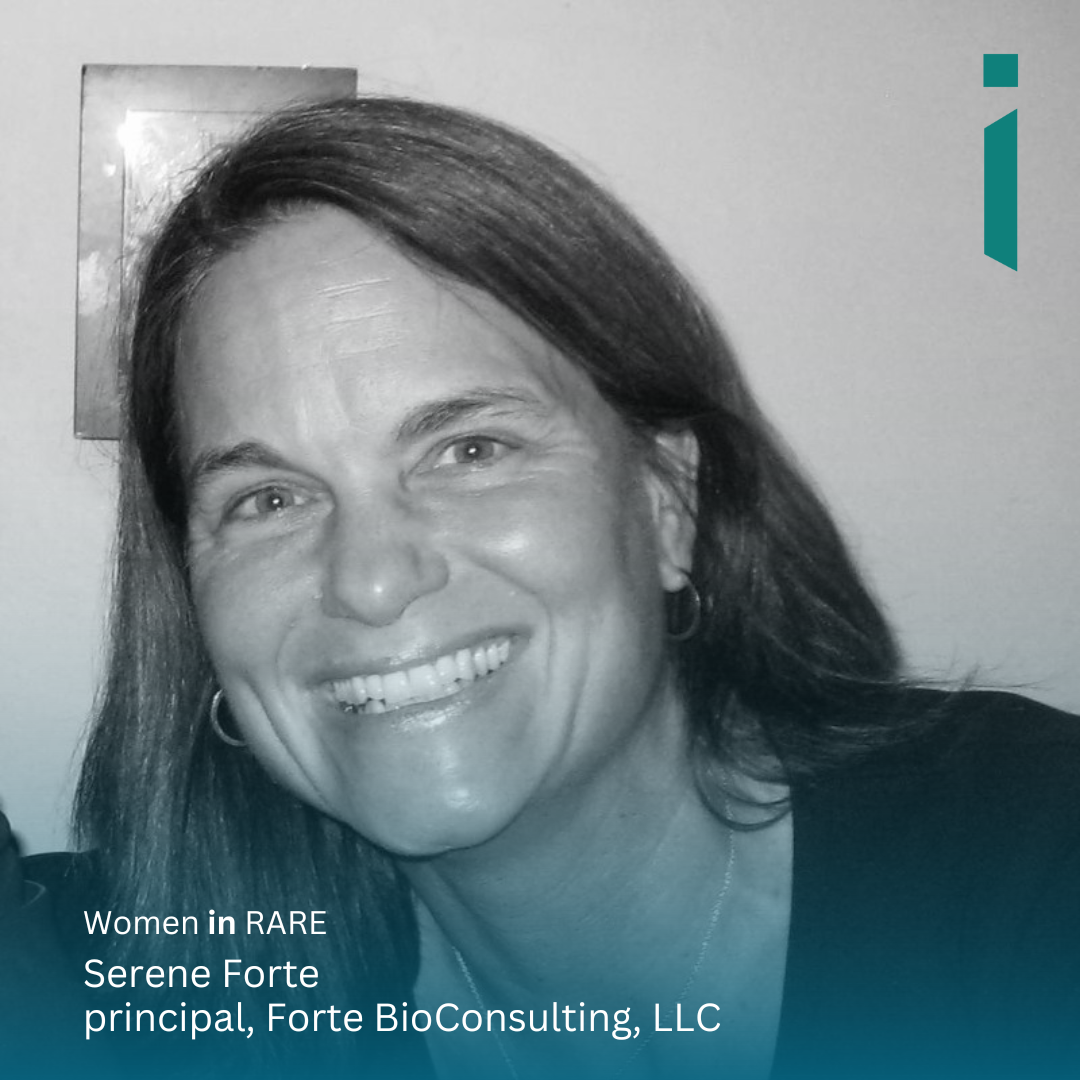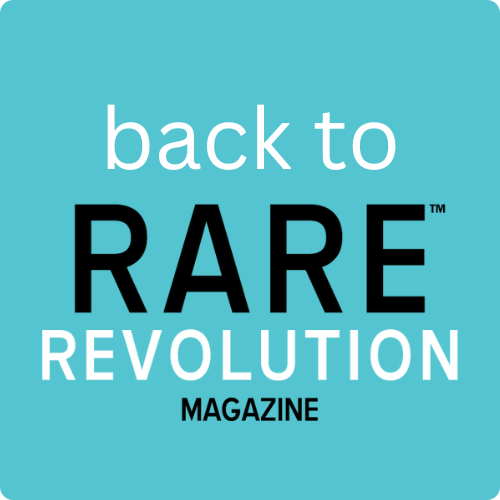Serene Forte of Forte BioConsulting, LLC
Estimated reading time: 6 minutes

“My motivation comes from bridging science, strategy and advocacy to turn promising discoveries into life-changing treatments for patients who need them most.”
Serene Forte PhD, MPH is an accomplished scientific and business leader with over 30 years of global experience in genetic medicine, rare disease and biotech commercialisation. She currently serves on the board of directors for a rare disease company, bringing deep expertise in strategic development, market access and medical affairs to guide organisational growth and impact.
Dr Forte has successfully led the launch preparation of transformative gene and RNA therapies, including Elevidys® for Duchenne muscular dystrophy, Kebilidi® for AADC deficiency and Vyjuvek® for epidermolysis bullosa. She is a recognised thought leader in rare diseases, gene replacement therapy, AAV technologies and gene editing. Known for her ability to forge high-value partnerships across academia, industry and advocacy, she has directed multi-million-dollar budgets and shaped global business development strategies. A virologist by training, she holds a PhD in Virology & Immunology and an MPH, and is dedicated to advancing innovative therapies that change lives.
What motivated you into your chosen career path?
For over two decades, my career in science and biotechnology has been rooted in advancing innovation, but for the past eight years, my work has been driven by a singular purpose—bringing hope to families affected by rare genetic diseases. Early in my career, I witnessed both the scientific challenges and the profound human toll of these conditions. That experience transformed my focus to genetic medicine, where I have helped bring five ground-breaking therapies—two RNA-based and three gene therapies—to market.
Each milestone reminded me of the urgency behind our work and the families waiting for answers. Rare disease is both a professional passion and a personal mission, inspiring me to continue contributing as a consultant and board member for a rare disease company.
My motivation comes from bridging science, strategy and advocacy to turn promising discoveries into life-changing treatments for patients who need them most.
What do you see as some of the opportunities as a woman in your field?
If you think about my field being a blend of cell and gene therapy, biotech commercialisation and rare disease advocacy, here’s where I see the most potential:
1. Leadership in biotech and pharma
The industry is increasingly aware that diverse leadership drives better innovation and business outcomes. Women leaders—particularly those with both scientific and commercial expertise—are in demand for C-suite roles, board positions and global programme leadership.
2. Shaping the future of rare disease therapies
Cell and gene therapy is still a relatively young field. Women with strategic vision and operational experience can play a central role in guiding clinical development, regulatory strategy and commercialisation for first-in-class treatments.
3. Board and advisory roles
Women are strong candidates for boards of biotech companies, patient advocacy groups and industry coalitions. These roles offer influence over research priorities, funding allocation and patient engagement strategies.
4. Patient-centred innovation
Women are leading the push to integrate patient voices into drug development—from trial design to post-market support. This is especially critical in rare diseases, where advocacy and science must work hand in hand.
5. Mentorship and talent development
With more young women entering biotech and genetic medicine, there’s a growing need for senior female leaders to mentor, sponsor and open doors for the next generation.
What are some of the barriers to success as a woman in your field?
In cell and gene therapy, biotech commercialisation and rare disease advocacy, the barriers for women aren’t usually about lack of capability—they’re often systemic, cultural or tied to the unique dynamics of high-stakes, fast-moving science. Here are some of the key ones:
1. Underrepresentation in senior leadership
While there’s progress, women are still underrepresented in C-suites, boardrooms, and principal investigator roles. This can limit access to decision-making power and high-visibility opportunities.
2. Unequal access to networks and capital
Much of biotech advancement is fuelled by relationships—with investors, research partners and industry influencers. Historically, these networks have been male-dominated, which can make it harder for women to secure funding or strategic partnerships.
3. Gender bias in perceived expertise
Women, even with deep technical and business expertise, sometimes face more scrutiny of their credentials or are asked to “prove it” more than male counterparts—especially in investor, regulatory or scientific forums.
4. Balancing career demands with personal commitments
This field is high-pressure, global and often travel-intensive. Women, who still tend to shoulder more caregiving responsibilities, may find the demands of clinical trials, commercialisation timelines and international conferences challenging without strong support systems.
5. Limited sponsorship vs mentorship
While mentorship for women is improving, sponsorship—the active advocacy that gets someone into stretch roles or executive pipelines—is less common for women in biotech. Without it, career progression can stall.
6. Bias in funding and research priorities
Historically, research funding has not always been equitably distributed across scientists or therapeutic areas led by women. In rare disease, which already fights for attention, this can be a compounded barrier.
7. Cultural dynamics in male-dominated scientific spaces
In certain boardrooms, lab environments or deal-making situations, women may still encounter subtle (or overt) exclusion from informal decision-making spaces.
What is one piece of advice you would give your 10-year-old self?
There is more out there than you can possibly know.
Relationships matter – Meet as many different people as you can, learn from their experiences, celebrate the differences.
Knowledge is power – ask questions, ask more questions, learn a language, stay curious, keep learning.
Health is important – Have a hobby outside of work that takes you outdoors. Go forest bathing, learn to surf, ride a bike.
Have a game plan – Dream big. Make a plan. Fail. Make another plan. Succeed. Trust that it will all work out in the end.
Others matter – Put your oxygen mask on first but always help others. Give back in as many ways as you can.
Can you tell us about your current work priorities and focus or a particular project you are working on?
My current priorities are divided between managing my consulting clients and giving back to the rare disease community. Through my consulting work, I partner with organisations in cell and gene therapy, driving initiatives that move us closer to life-changing treatments and cures for ultra-rare and rare conditions.
Alongside this, I actively volunteer with several patient-focused rare disease organisations, where I share my time, expertise and experience to support their mission of accelerating progress toward life-changing therapies for those affected by these conditions. This work allows me to give back in the most meaningful way I know—supporting communities, amplifying patient voices and accelerating the path to breakthroughs that can transform lives.
Connect with Serene
Women in RARE is a celebration of women working in the RARE space in science, research, industry and advocacy. To access more Women in RARE articles click below.

